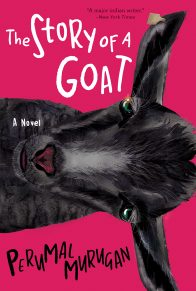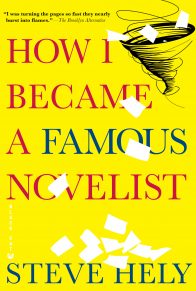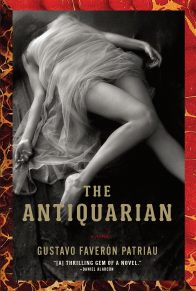The door creaked open and Jonathan Seede peered out from the depths. There were dark circles beneath his glassy eyes; his lips appeared to be painfully chapped. He stepped into the vestibule of his narrow, turn-of-the-century row house, gripped with both hands the iron bars of the security gate—a twenty-nine-year-old urban pioneer wearing a hooded sweatshirt, black jeans, and a pair of fringed Indian moccasins he’d bought one weekend at a tourist trap in the mountains. “What’s up?” he asked his visitor. The words turned to vapor in the frigid air.
“You look like you’re in prison,” said Jim Freeman, his tone mildly flirtatious. Thirty-five years old, with naturally curly hair and freckles, Freeman lived across the street. His pant legs were stuffed into calf-high, lace-up construction boots. A puffy down jacket and a fluorescent orange safety vest, the kind worn by crossing guards, completed his ensemble. In one hand, balanced expertly on his fingertips, was a turquoise Fiesta dinnerware plate, covered with aluminum foil.
“A prison of my own making,” Seede said.
Freeman shifted the plate to his left hand. “How are Dulcy and Jake?”
“No clue.”
“Ha, ha,” Freeman deadpanned.
Seede looked past his friend, down the narrow, one-way street—cobblestone sidewalks, bay windows, Second Empire mansard roofs, everything faithfully restored. It was just after eleven P.M. on the third Tuesday of December 1992. From where they stood—on the elevated front landing of a brick Victorian, on the south side of Corcoran Street NW, in Washington, DC—the White House was ten blocks away. The traffic crawled eastward, bumper to bumper—engines revving, music blaring, the night abuzz with need and opportunity. Freeman took a half step to his left, into Seede’s line of sight. They’d met seven years earlier, when Seede first arrived in town, fresh out of college, another in the legion of wing-tipped overachievers who’d come to the nation’s capital to make his mark. Through the years, they’d grown close in the way that neighbors can: two men, rootless in a big city, joined by chance and proximity, their shared experience compounded over time, like interest. As Freeman liked to toast every Thanksgiving at his gathering of orphans and misfits: “To friends: because you get to pick them yourself.”
“What do you mean no clue?” Freeman asked.
“I mean that I don’t know how they are. They’re gone.”
“Gone, like, on a trip?”
“Just gone.”
Freeman leveled him with his green-gray eyes. “What’s up, Jonathan? Spill.”
“What’s with the outfit?” Seede searched his pockets for a cigarette, a lighter. “What is it—hard hat night at the Eagle?”
“Whore patrol—remember? You’re still coming, right?”
“Tonight?”
“We could really use your expertise.”
A deep drag; a voluminous exhalation. “Contrary to what anyone says, I have never in my life been a member of a whore patrol.”
“But you know all the cops. You know all the hookers.”
“Exactly.”
“So you could be a great help.”
“I could also lose my job. Newspaper reporters are supposed to be neutral. We can’t take part in neighborhood protests—we’re not even supposed to vote.”
“It’s not a protest. It’s an action. You’ve heard of Take Back the Night? We’re taking back our neighborhood. It’s yours too, isn’t it? Don’t reporters get to be people sometimes? Come on Jonathan. Please. You don’t have to wear the vest if you don’t want to.”
Seede looked at him. Fucking Freeman. About a month ago he’d announced his latest personal quest: a five-year plan to become the youngest-looking forty-year-old in Washington, DC. To this end, he’d taken up smoking and jogging—smoking to speed his metabolism and quell his appetite; jogging to counter the smoking.
“I like the hookers,” Seede protested. “They’re like landmarks in our little town-within-a-town. I use them to give directions: Go north on Fourteenth Street, then turn east on Corcoran at the fat black hooker with the blonde Afro wig.”
“And I suppose you love the used condoms and the crack vials. I’ll bet Jake has a super collection of syringes by now.”
Seede’s face fell. “I forgot—you lunch regularly with my wife.”
“I’ve always said she has a good head on her shoulders.”
“Not you too, Jim.”
Freeman tilted back his own head appraisingly. At his suggestion, the Seedes had recently pointed and painted the facade of the house. It looked marvelous. “I could probably get you twice what you paid.”
“And then I move where, exactly? To Fairfax County? I could take a van pool into work.” He took another deep drag of his cigarette, exhaled the smoke thickly through his nose. The ash, two inches long, hung precariously.
Wisely, Freeman returned to the subject at hand. “What do you say, Jonathan? Will you come with us? You can just observe. If you’re there, maybe people in the neighborhood will take us more seriously. Pretty please?” he crooned. “I even brought you a bribe.”
Freeman held up the plate for Seede’s inspection, raised the foil teasingly, like a skirt—revealing a thick, oozing slab of his famous blueberry-rhubarb pie.
For one brief instant, it appeared as if Seede was going to vomit. He reached out through the security bars with his hand, guided the plate away. He took another deep pull on his cigarette. “Did you get a permit? Did you call the Third District to let them know what you’re up to? What if Wolfie gets into another altercation?”
“That was not his fault.”
Seede smiled ruefully. “The woman was on her way to church, Jim.”
“It was dark! She was wearing four-inch heels and a leopard-print jacket.”
“Can’t you guys focus on something else in the neighborhood? What ever happened to the food bank idea?”
“We even have a walkie-talkie,” Freeman said. “It’s Bob’s from the war. He took it off a dead Vietcong.”
“Bob was in the army?”
“Marines.”
“What does he tell the fellas at reunions?”
“Are you kidding?” Freeman laughed out loud, a booming baritone rendition of a schoolgirl’s nervous giggle. “You know what they say about marines: the few, the brave, the built. A whole contingent from the president’s Honor Guard are regulars at Chaps. You should see the bodies on those guys.”
“You mean that gay country-and-western bar?”
“Marching, two-stepping—it’s all the same. Different music is all, different costumes. Plus you get to hold hands. Wolfie was a marine too.”
“No way.”
“Waaay,” Freeman sang. “Did I ever tell you that story? About the first time we met?”
Seede nestled his face between the newly painted, gleaming black enamel iron bars. His head ached, the right side especially, at the temple and the jaw. The cold metal felt bracing. “What kind of walkie-talkies do you have?”
“Well, actually, we only have one.”
“One? What the hell do you think you’re gonna do—”
Freeman waved him off with a limp wrist. “None of the hookers or johns will know. It’s this big ole thing. You wear it on your back. We figured if we just walked around talking into the phone, we’d look more official.”
“I’m sure you and Wolfie will strike fear into the golden heart of every hooker out there.”
“So what’s it gonna be? Will you come? Just do it for an hour. Please?”
A pained expression: “I don’t know, Jim . . . It’s just so . . . suburban vigilante. Come in for a minute. It’s fucking freezing out here.”













